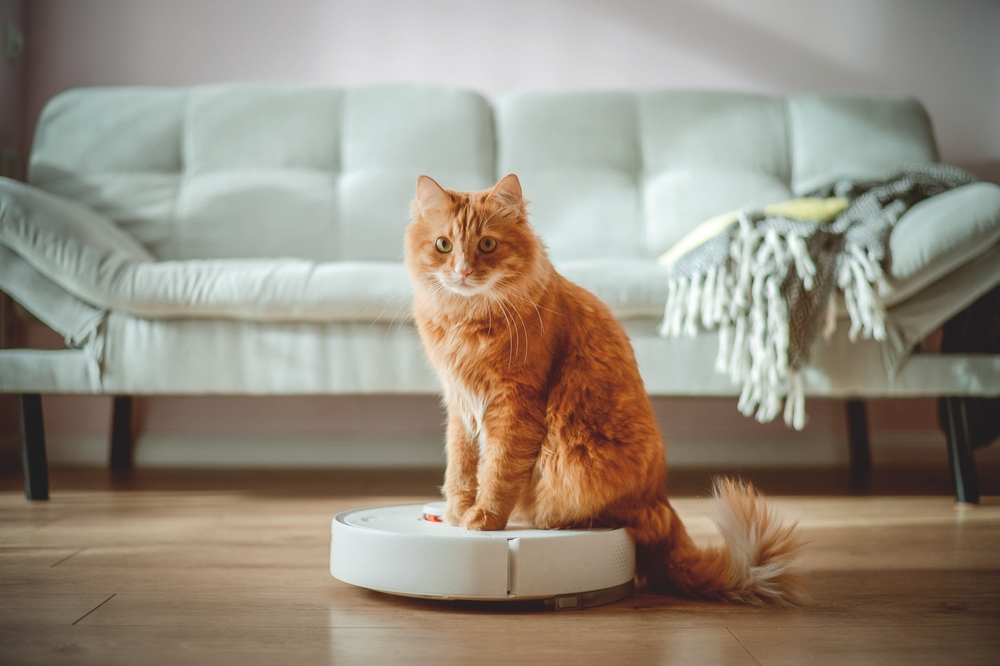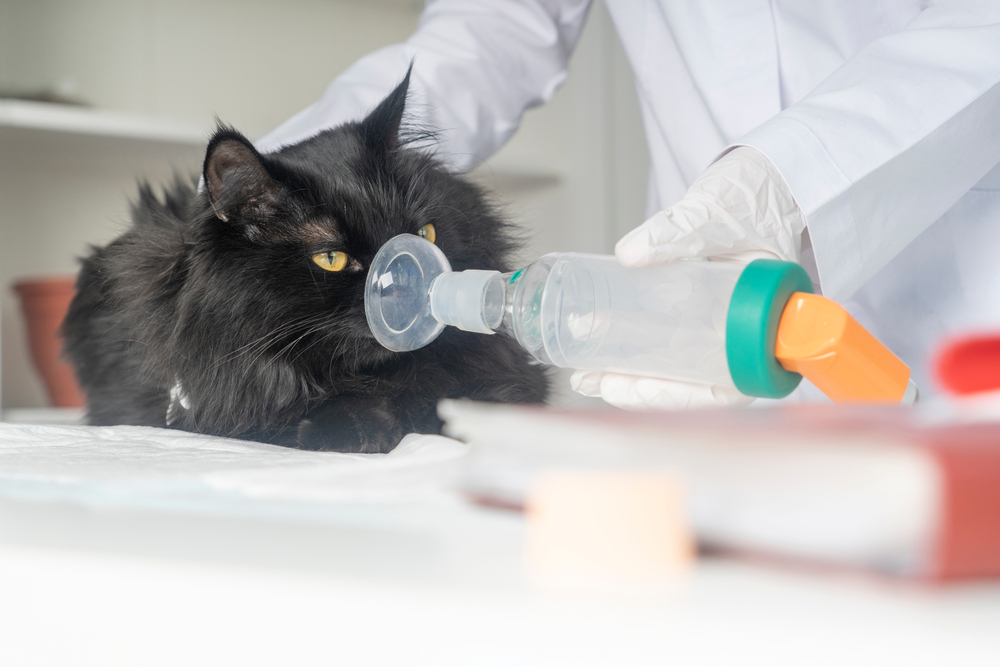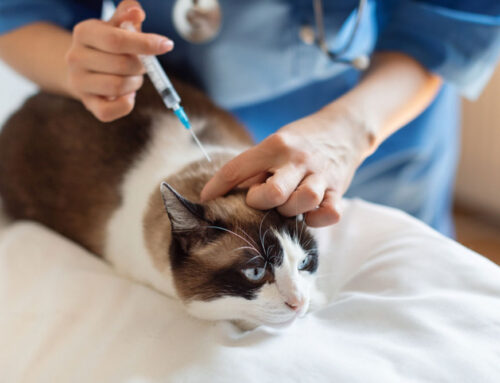Did you know that feline asthma is more common than most cat owners realize? In fact, it’s estimated that up to 5% of cats experience this chronic respiratory condition. If you’re living in Austin, with its beautiful but allergy-laden environment, your cat might be more susceptible than you think. At Oliver Animal Hospital, we’re here to help you navigate this condition, ensuring your cat gets the best care and lives a happy, healthy life.
What is Feline Asthma?
Feline asthma is a chronic condition that affects your cat’s airways, causing them to narrow and become inflamed. This inflammation leads to difficulty breathing, coughing, and sometimes even wheezing. It’s quite similar to human asthma, and it can be managed effectively with the right care. If you’d like to dive into the science behind this condition, the Cornell Feline Health Center offers a great resource.
Common Causes and Triggers
What triggers feline asthma? While the exact cause isn’t always clear, we know that allergens and environmental factors play a big role. Here in Austin, pollen, dust, and mold are particularly common triggers. If your cat is wheezing after you’ve cleaned the house, it might be due to exposure to dust or cleaning products. Other potential irritants include smoke and even certain household sprays. Keeping your home clean and allergen-free is key to preventing asthma flare-ups.
Signs Your Cat May Have Asthma
Early detection is critical to managing feline asthma, so it’s important to recognize the signs:
- Frequent coughing or hacking (not to be confused with hairballs)
- Wheezing or making a whistling sound while breathing
- Labored breathing, especially after playing or exertion
- Increased respiratory rate
- In severe cases, you may notice your cat’s lips or gums turning blue—a sign they need emergency care!
If you’re ever in doubt about what’s normal for your cat, feel free to give us a call or visit our emergency services page for more information on where to go if it’s after hours.
Are Certain Breeds More Prone?
Although asthma can affect any cat, certain breeds such as Siamese and Himalayan cats may be genetically predisposed. Regular veterinary checkups are crucial if your cat belongs to one of these breeds or has a family history of respiratory issues.
How Oliver Animal Hospital Can Help
At Oliver Animal Hospital, we are equipped with advanced diagnostic tools to identify and manage feline asthma. From inhalers to corticosteroids, we’ll create a personalized treatment plan for your cat, based on their specific needs. Visit our services page to learn more about what we offer.
Treatment and Management
Managing feline asthma is a multi-step process:
- Medications: Inhalers or corticosteroids can help reduce airway inflammation and prevent asthma attacks.
- Environmental Changes: Identifying and reducing asthma triggers in your home is key to keeping your cat’s asthma under control. Consider using air purifiers and opting for hypoallergenic cleaning products.
- Regular Monitoring: Like with any chronic condition, regular vet visits are essential. This allows us to adjust treatments as needed and ensure your cat is doing well.
Preventing Asthma Attacks

There are several ways to reduce the chances of asthma flare-ups:
- Keep your home dust-free by vacuuming regularly.
- Use air purifiers to remove pollen and other airborne allergens.
- Avoid smoking near your cat or using strong aerosols in their vicinity.
Want more tips on how to create a cat-friendly, asthma-safe home? Reach out to us today!
FAQs on Feline Asthma: Important Questions for Concerned Cat Owners
- Can feline asthma be cured?
While there is no cure for feline asthma, it can be effectively managed with the right care. Treatments like inhalers and corticosteroids help control symptoms, allowing your cat to live comfortably. Regular monitoring and a consistent treatment plan are essential to ensure your cat’s asthma remains under control. - Is an inhaler safe for my cat?
Yes, inhalers designed for pets are generally safe when prescribed by your vet. They deliver medication directly to your cat’s lungs, reducing inflammation in the airways. Many pet owners find that inhalers are an effective way to manage feline asthma and improve their cat’s breathing. - How can I make my home more asthma-friendly for my cat?
To reduce asthma triggers, consider using HEPA air purifiers, dusting and vacuuming regularly, and choosing hypoallergenic cleaning products. Avoid smoking indoors, and limit your cat’s exposure to strong scents or aerosols, which can irritate their sensitive airways.
Recognizing the signs of feline asthma and taking preventive measures can make all the difference in your cat’s quality of life. With the right veterinary care, many cats with asthma go on to live happy, active lives.
Schedule an Appointment Today
If your cat is showing any signs of asthma or if you’re looking for a trusted vet in South Austin, we’re here for you. At Oliver Animal Hospital, we believe in providing compassionate, high-quality care for every pet. Contact us today to schedule an appointment, or visit our blog for more pet health tips.




Leave A Comment